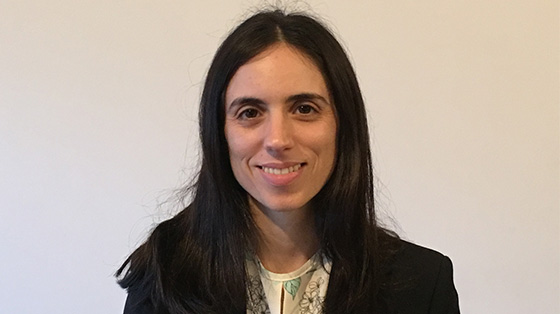Dr. Yeela Talmor, Rabin Medical Exchange Fellow at NewYork-Presbyterian/Columbia University Medical Center, NYC, Enhances Skills in Invasive Cardiology

Dr. Yeela Talmor is a cardiologist from Israel’s Rabin Medical Center who specializes in invasive cardiac interventions. Dr. Talmor has a Ph.D. from Tel Aviv University in Medical Science and has been leading research with the prestigious Weizmann Institute for the past year on acute coronary syndrome patients.
American Friends of Rabin Medical Center sponsored Dr. Talmor for a four-week observership in the Cardiology Department at NewYork-Presbyterian/Columbia University Medical Center in New York City. Dr. Talmor was under the guidance of Prof. Martin B. Leon, Director of the Center for Interventional Vascular Therapy.
INTERVIEW WITH RABIN MEDICAL EXCHANGE FELLOW DR. YEELA TALMOR
What is your area of focus and why did you choose this?
My area of focus is invasive cardiology, especially structural cardiology, which combines advanced technology and innovation with invasive medicine.
Please provide an overview of your fellowship at your hospital in the US and the role you played during your stay.
I had a very interesting fellowship. Two days a week I joined the valve clinic, run by both an interventional cardiologist and a thoracic surgeon where, I joined the team in reviewing each case and talking with and examining the patients. On the other days, I observed all the procedures in the cath lab during large scale, diverse and challenging cases. In addition, I took part in a very interesting training in complex interventions performed by Columbia doctors.
Describe how your fellowship opportunity has expanded your knowledge in your specific field.
I learned a lot about complex interventions and new techniques not yet done in Israel, such as the retrograde approach in chronic total occlusion. Also, the TAVR procedure is being done with cerebral protection. As this does not take place in Israel, I learned a lot about this protection device. Additionally, I learned about different closure devices for the groin.
What did you enjoy most about your fellowship opportunity in the United States hospital?
I enjoyed the attitude of doctors to their colleagues and patients, from the time they devoted to each patient to the training of younger doctors. As a fellow, I got the same kind behavior and training.
What were some of the challenges you faced while working at your hospital in the US?
A big challenge is the orientation in a large hospital with which you are not familiar. However, after the first week I could easily manage. Another challenge are the long working hours from very early in the morning until evening.
Explain the major differences between the Israeli health care system and the United States private healthcare systems in terms of your specific field.
I believe the biggest differences are the insurances and participation in medical payment and the salaries of the doctors. These differences also lead to longer waiting times for medical treatment in Israel.
Can you describe a specific incidence when your fellowship really impacted you or you learned something vital?
I learned the importance of spending more time with each patient and his family, to discuss his questions and fears in more detail. Unfortunately, in Israel we have less time to be with each patient, however I believe we should try and change it.
Do you feel international medical relationships and fellowship programs are vital to the future of medicine and research?
It is extremely important, especially to maintaining the high level of medical knowledge and performances in Israel as well as research.
Would you recommend this fellowship to your peers? Why or why not?
I highly recommend this fellowship. It is a great opportunity to learn new things and connect to colleagues outside Israel. It also helps to understand more about longer fellowship programs abroad.
Related Articles
Genetic BRCA Screenings: Knowledge Is Power in Our Fight Against Cancer
In September, 2015, at age 51, Melissa Arnold was
diagnosed with ovarian cancer. Her immediate
reaction was relief. She had felt awful for
months, with pain in her upper chest and
weird bloating in her stomach and legs.
The Helen Schneider Hospital for Women at Rabin Medical Center: From Strength to Strength
The Helen Schneider Hospital for Women at Rabin Medical Center, headed by Prof. Marek Glezerman, is the largest comprehensive hospital for women in Israel, and deals with all aspects of women's health.
International Conference in Gender Medicine
The 5th International Conference in Gender Medicine was recently held in Tel Aviv, bringing more than five hundred participants from nineteen countries around the world.